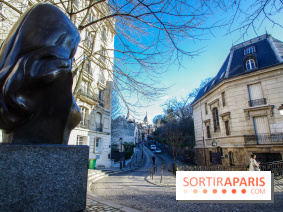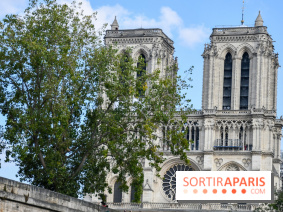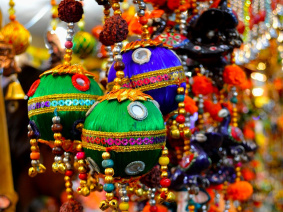From August 19 to 25, 1944, Paris, which had been occupied by German troops for 4 years, was liberated by the joint action of the Resistance, the French Forces of the Interior, General Leclerc 's 2nd Armored Division and the Allied troops sent by General Eisenhower.
On Saturday, August 25, 1944, at 4pm, Charles de Gaulle triumphantly arrived in the capital, liberated from the German occupiers but battered by the many confrontations of the previous days. It was the General's grand return to the city he had left four years earlier, and which, in his eyes, represented national reconquest.
Arriving by car from Chartres at the Gare Montparnasse, Charles de Gaulle is presented by General Leclerc with the ceasefire orders that formalize the German surrender, signed an hour earlier by German General Dietrich von Choltitz, commander of the 84th Army Corps, and Colonel Henri Rol-Tanguy, regional leader of the Francs-tireurs et partisans of the Forces Françaises de l'Intérieur.
After stopping at the Ministry of War, from which he had left on the night of June 10, 1940, and at the Préfecture de Police, Charles de Gaulle walked toHôtel de Ville, where he met up with the Paris Liberation Committee, the National Resistance Committee and detachments of combatants. Georges Bidault, President of the CNR, asks the General to proclaim the re-establishment of the French Republic.
Arguing that it had never ceased to be, the great Charles improvised one of his strongest and most famous speeches at around 7pm on the square in front of the Hôtel de Ville, in front of a jubilant crowd of Parisians.
* * *
"Why should we conceal the emotion that grips all of us, men and women, who are here, at home, in Paris standing up to liberate itself and who knew how to do it with their own hands. No! we will not conceal this deep and sacred emotion. There are minutes there that surpass each of our poor lives.
Paris! Paris outraged! Paris broken! Paris martyred! But Paris liberated! Liberated by itself, liberated by its people with the help of the armies of France, with the support and help of the whole of France, the France that fights, the only France, the true France, the eternal France.
Well, well, well! Since the enemy who held Paris has surrendered into our hands, France is returning home to Paris. Bloody, but resolute. She returns, enlightened by the immense lesson she has learned, but more certain than ever of her duties and her rights. I say her duties first, and I'll sum them all up by saying that, for the moment, they are the duties of war. The enemy is faltering, but not yet defeated. He remains on our soil. It will not even be enough for us, with the help of our dear and admirable allies, to have driven him from our land for us to be satisfied with what has happened. We want to enter its territory as we should, as victors.
That's why the French avant-garde entered Paris with cannon fire. That's why the great French army from Italy has landed in the Midi and is moving rapidly up the Rhône valley. It's why our brave and beloved interior forces are going to arm themselves with modern weapons. It is for this revenge, this vengeance and this justice, that we will continue to fight until the last day, until the day of total and complete victory.
All the men here and all those who hear us in France know that this duty of war demands national unity. We, who will have lived through the greatest hours of our history, need want nothing more than to show ourselves worthy of France, right to the end. Vive la France!"
* * *
With these words, which have gone down in history, Charles de Gaulle celebrates the liberation of Paris, the ultimate act of the resistance movement formed in the wake of his appeal from London on June 18, 1940, in response to the armistice decision taken by Pétain and his new Vichy government. Calling fornational political unity with his dazzling verve, General de Gaulle also sought to establish his legitimacy as the leader of this new, liberated and victorious France.
His impromptu speech was broadcast on the radio that same evening, while the general moved to the Ministry of War, where he took up his post as head of the provisional government of the French Republic.
To celebrate the Liberation of Paris in style, a tribute reading will be held in front of the Hôtel de Ville on August 25, 2021 at 5:30pm. Alternatively, why not take advantage of the Journées du Patrimoine 2021 to visit the Hôtel de Ville ? The Parisian institution will be opening its doors on September 18 and 19.
Location
City Hall of the 4ᵉ arrondissement of Paris
2 Place Baudoyer
75004 Paris 4
More information
Photo : Musée Carnavalet















